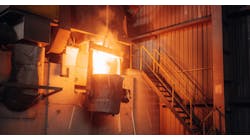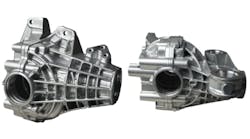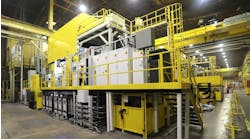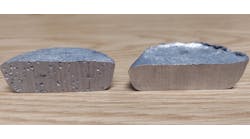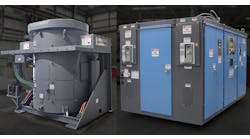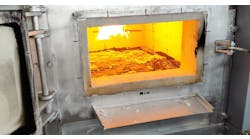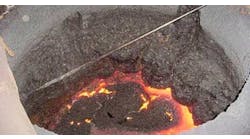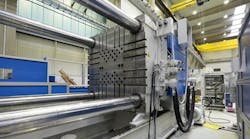The Constellium University Technology Center (UTC) at Brunel University London was dedicated recently, providing an academic and research background for the aluminum producer’s efforts in design, development and prototyping of aluminum alloys and automotive structural components.
Constellium is an Amsterdam-headquartered business with secondary aluminum production operations in Europe, the U.S., and China. It supplies cast, extruded, and rolled aluminum products for aerospace, automotive, and packaging markets.
At the same time, the University marked the opening of the “Advanced Metal Casting Centre” (AMCC), which is focused on developing lightweight, high-performance aluminum alloys for the automotive and rail industries.
Managed by Brunel University London, Jaguar Land Rover, and Constellium, the AMCC next year will be expanded with the addition of the “Advanced Metal Processing Centre” (AMPC), adding capabilities for fabricating and testing of aluminum automotive structural components. The Constellium University Technology Center at Brunel provides “fully integrated rapid prototyping capability from alloy development to full component manufacturing,” according to a release. It has industrial-scale aluminum casting and extrusion equipment, which will help to reduce development times for advanced aluminum alloys needed for lightweight automotive structural parts. Technologies developed there will be transferred to Constellium plans to speed the link from research to series production.
“As the leading Tier 1 supplier of aluminum structural components to the global automotive market, and a leader in innovation in our industry, we are excited about the advantages Constellium’s University Technology Center will offer to automakers,” stated Paul Warton, president of Constellium’s Automotive Structures and Industry business unit.
In partnership with Brunel University London, Constellium is establishing a fellowship program for Ph.D. students and post-doctoral fellows. A team of 15 Constellium researchers, engineers, and technicians will apply new developments in material science research to practical solutions for future vehicle programs.
Constellium aims to expand its 6000-Series alloy portfolio for developing lightweight, high-strength aluminum automotive structures and Crash Management Systems, to improve fuel economy and reduce CO2 emissions.
